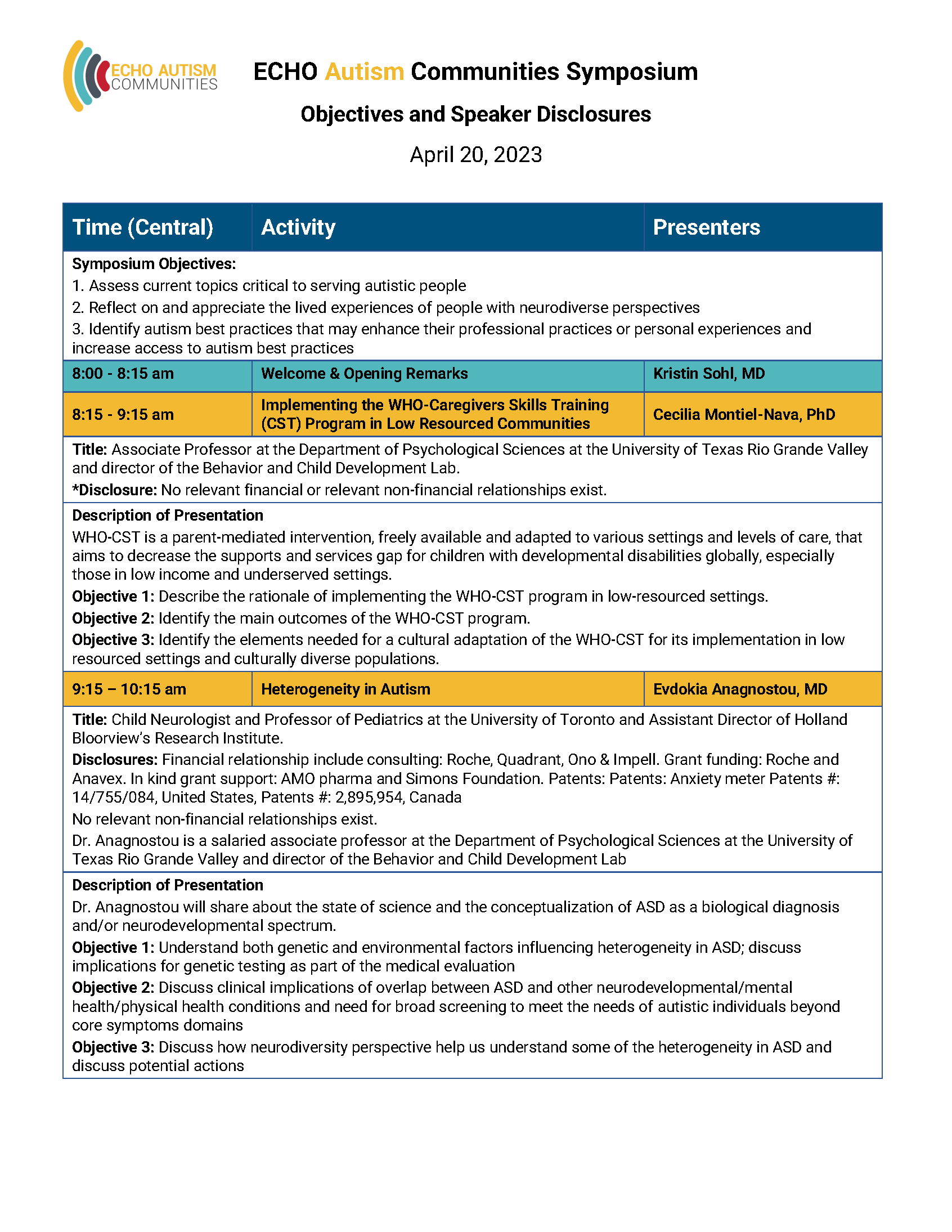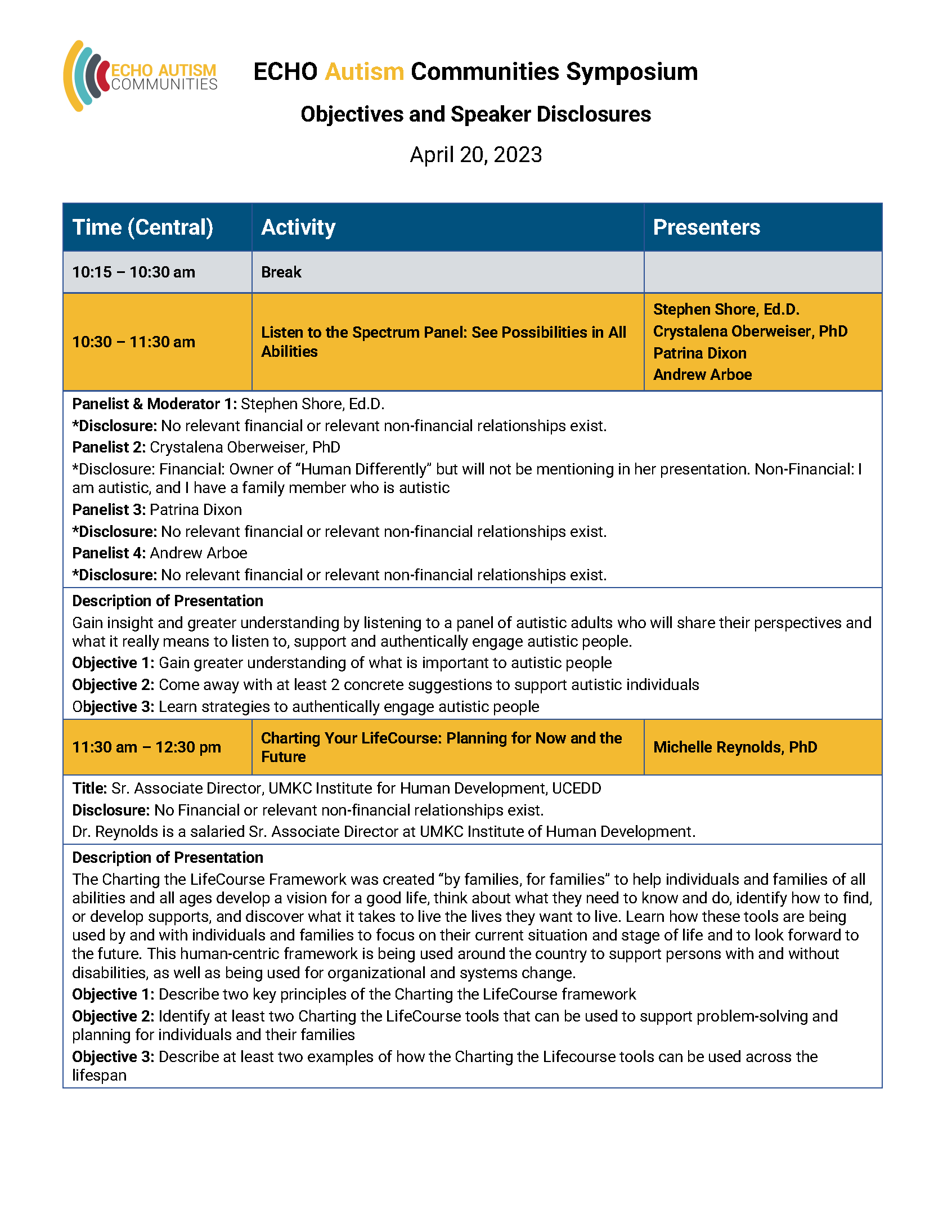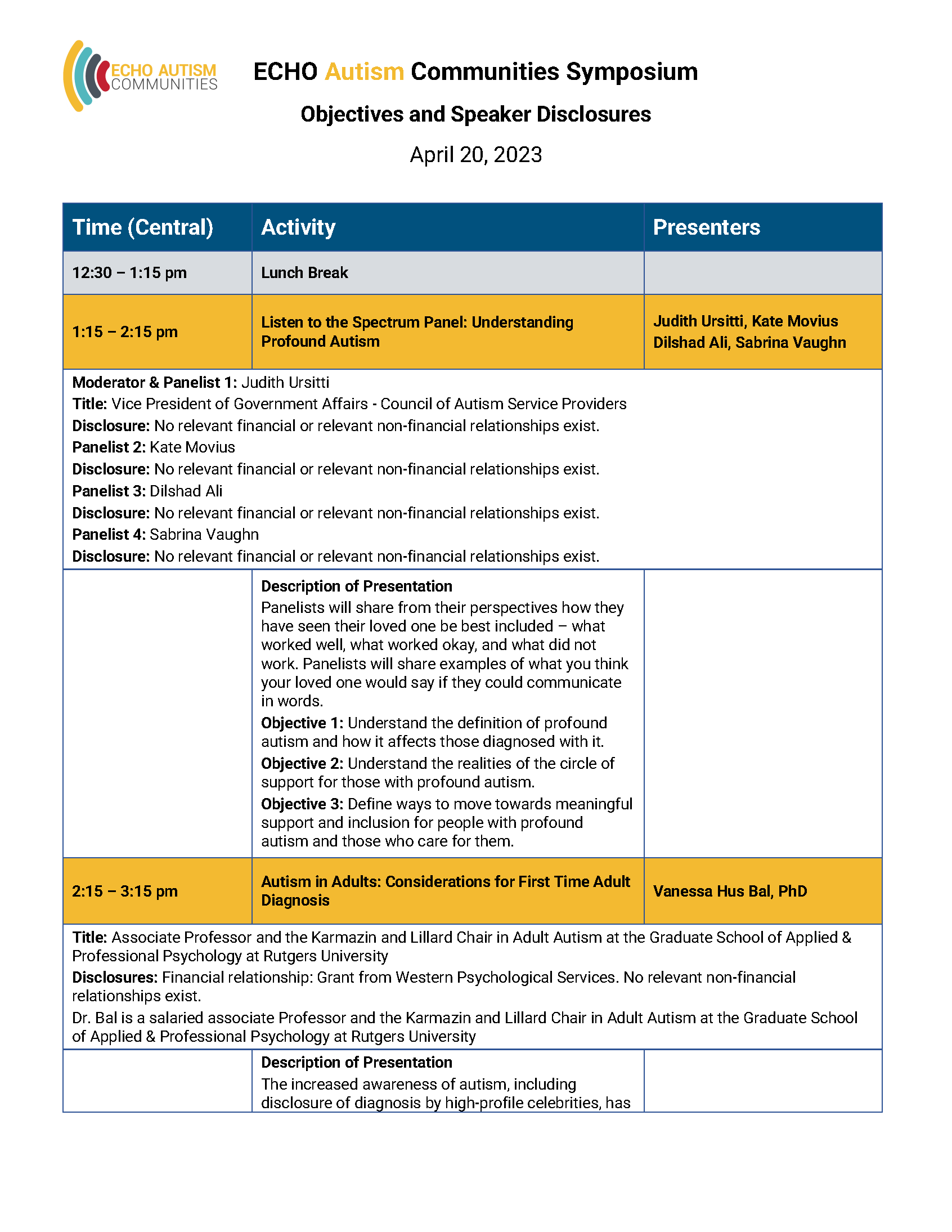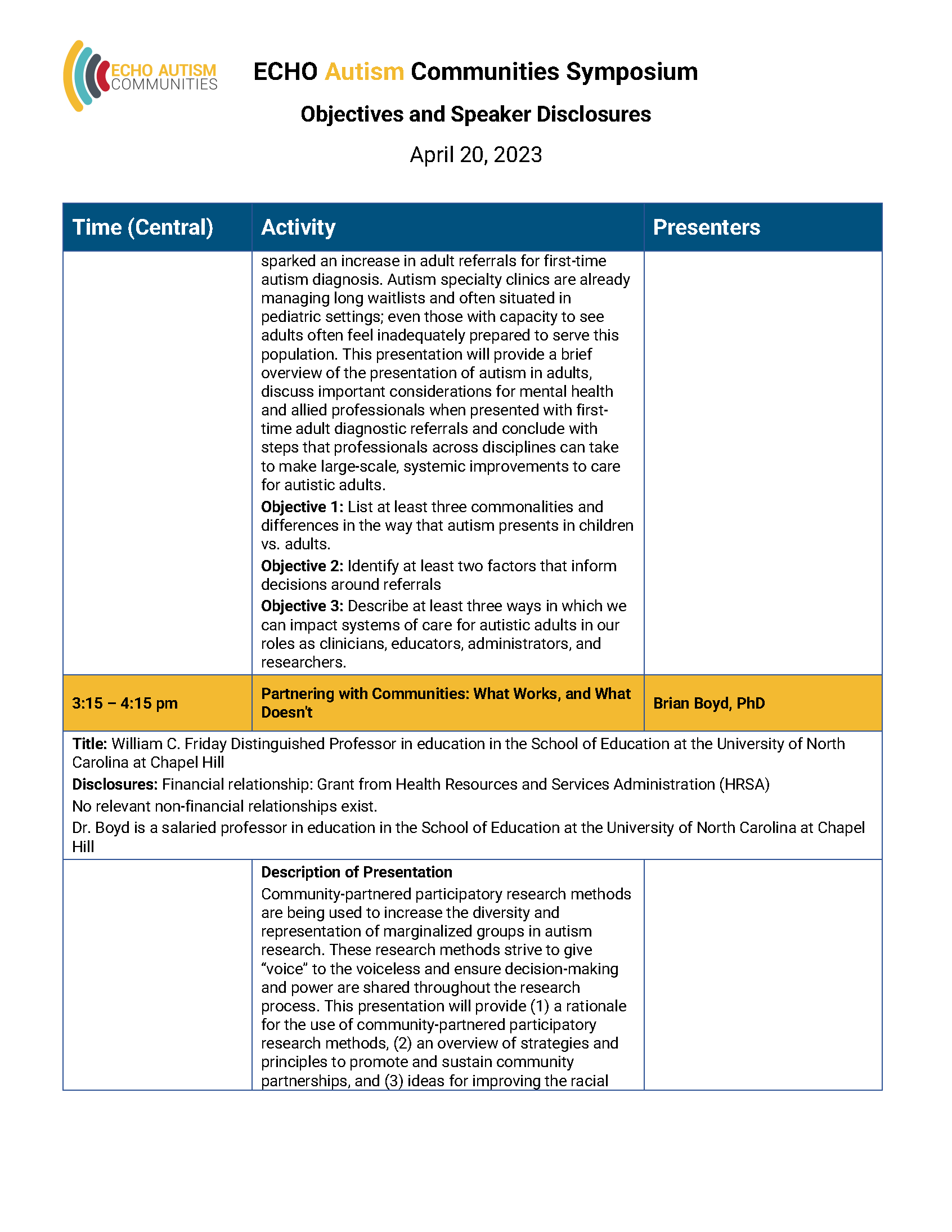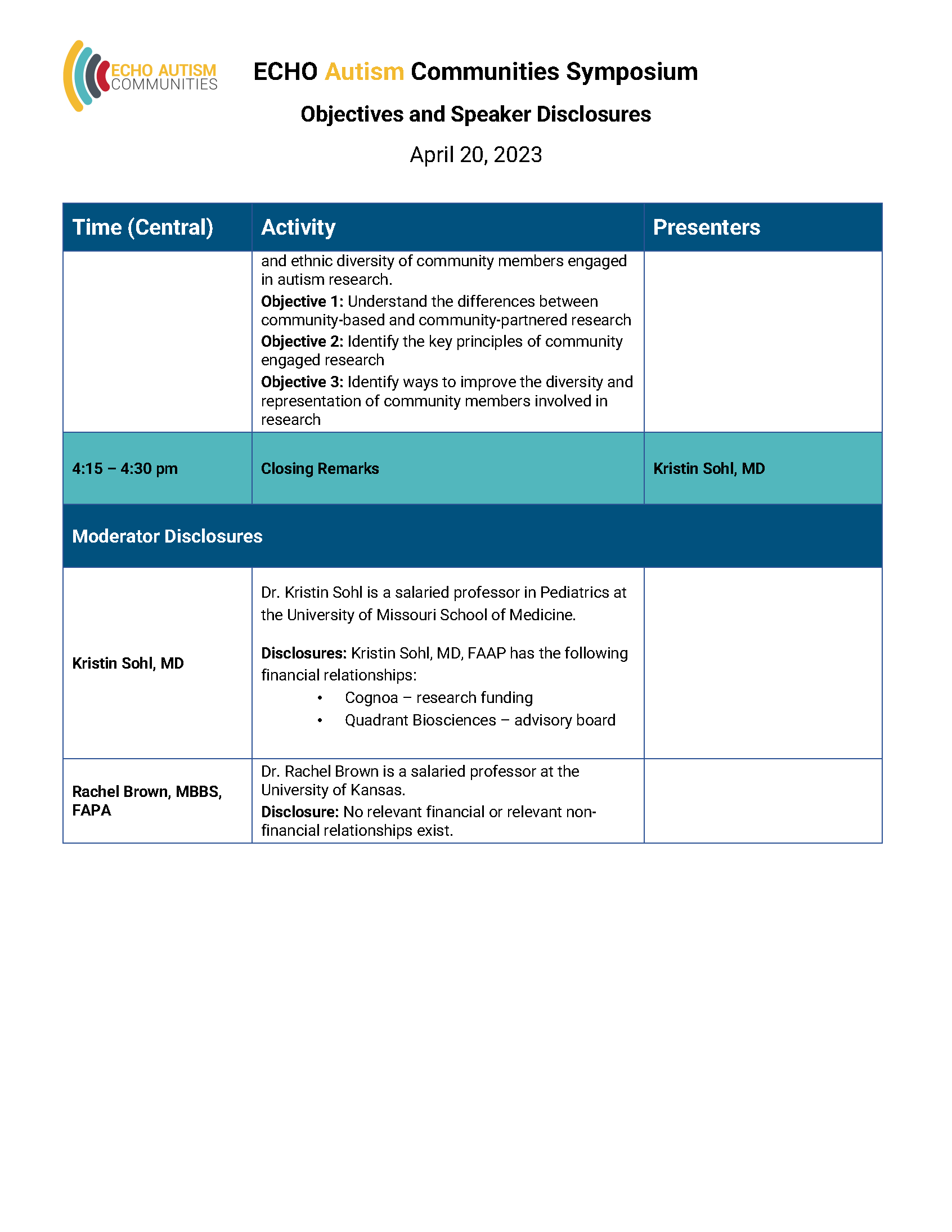December 2020
Common Medical Conditions in Autism: Webinar Review
Many individuals with autism have common co-occurring conditions such as gastrointestinal (tummy) trouble, sleep problems, seizures, dental issues and more. That’s why the ECHO Autism: Primary Care Hub Team got together to discuss conditions as they relate to autism spectrum disorder, and provide insights as to how families, providers, and people with autism can recognize the signs and symptoms of these common medical conditions.
Throughout the webinar, the Hub Team defines common medical conditions in autism, identifies common features of medical conditions, and recognizes where to locate helpful resources for these conditions. In this webinar review, we will dive into some Q&As from the webinar. Watch the full video below!
When Should Parents Worry About Their Child’s Eating Habits?
According to Sheila Chapman, Pediatric Registered Dietician for the University of Missouri, parents may want to take notice of their child’s eating habits if they’re experiencing weight loss or deviating from their target growth percentile at the doctor’s office.
“Signs of inadequate intake could be fatigue or difficulty keeping up with siblings or peers, having a decreased appetite, or being full really quickly after a few bites… frequent illnesses could be another indicator,” Chapman said.
Missing more than two food groups, being very brand specific, and getting burnt out on foods that children have been eating for months are also all signs of problematic eating habits.
If your child or patient is experiencing poor eating habits, seeking a dietary specialist, or reaching out to their pediatrician is a great first step to analyzing the issue and providing manageable solutions.
Why Are Food Aversions a Symptom of Autism Spectrum Disorder?
Why are some individuals with autism very particular about different food items or resistant to trying new foods?
“There’s a rigidity around what certain foods are supposed to look like and taste like and anything that is different than that is really hard for them to explore,” Sheila explains.
From specific brands of chicken nuggets, to homemade food, to the varying states of fresh fruits and vegetables, there can be a lot of variables between how food is cooked and presented, and that can cause stress or be a source of anxiety for individuals living with autism.
Where Can Parents Start When it Comes to Improving Sleep Routines?
“Oftentimes a lot of those sleep issues just have to do with poor structure around sleeping habits, so developing good sleep hygiene is probably the best place to start,” Valeria Nanclares, Clinical Psychologist and Director of ECHO Autism Program Development & Global Expansion said.
That means having dinner around the same time every night, turning off screens 30-60 minutes before going to sleep, and having a similar bedtime routine nightly will prepare the child and the body for a good night’s sleep.
Trying to set up a routine—and then maintaining it—helps children develop good sleep hygiene. Another key component is to figure out what each individual child finds calming before bed, and implementing that into the routine.
“Oftentimes parents are like, ‘well maybe if I give them a nice warm bath before bed, that will put them to sleep,’ and sometimes that’s the opposite of what the child needs. Figuring out what is calming for each child—maybe it’s doing jumping jacks before going to sleep—instead of the nice soothing bath that we might think for ourselves is soothing, but not necessarily calming for that child’s system.”
If that doesn’t work, moving on to explore other options might include melatonin use, medication, or other route of treatment. But first and foremost, setting up a structure and sleep hygiene to prep the body to go to sleep is where parents should start.
When and How Should Parents Consider Using Sleep Aids like Melatonin?
“You don’t go there on its own. If you’re going to use medication you need to be doing the other things as well, if at all possible,” says Dr. Rachel Brown, Child & Adolescent Psychiatrist at Kansas University, Wichita School of Medicine.
These other things include setting up a routine, being consistent, figuring out what is soothing, and getting up at the same time as well. Dr. Brown points out that if the child sleeps until 10am on Saturdays but 6am on Mondays, their whole sleep pattern is disrupted. So, making sure there’s a routine throughout the whole week is important when establishing good sleep hygiene.
So how does melatonin play a role in this?
When it starts to get dark, our bodies naturally produce melatonin, a hormone made in the brain. As the day goes on and you start to feel sleepy, one of those things causing that feeling is melatonin.
“What we think is happening in at least some of the people who have autism spectrum disorders is that normal cycling of hormones is disrupted and isn’t happening in a routine kind of way. So if you’re working with a family where they’re saying ‘we’re doing everything we can do and it’s really not working,’ then one of the things you could think about in addition to all the behavior stuff is to use a medication.”
Still Have Questions?
The Hub Team covers plenty of ground in this webinar, including how parents can stay grounded during challenging times, how co-occurring conditions can affect day-to-day life, and how team-based care can improve outcomes.
If you’re interested in learning more about common medical conditions associated with autism spectrum disorder, check out the whole webinar by clicking here.








